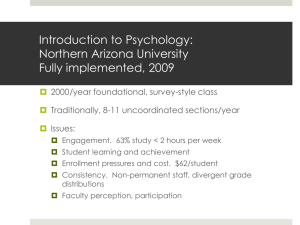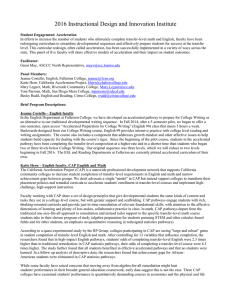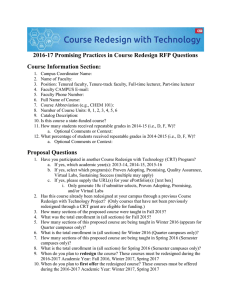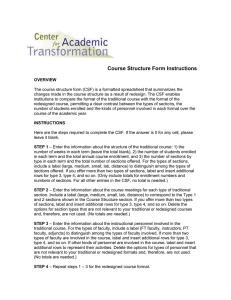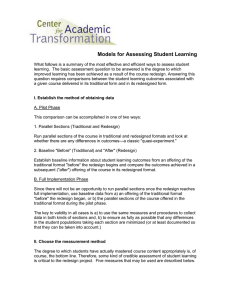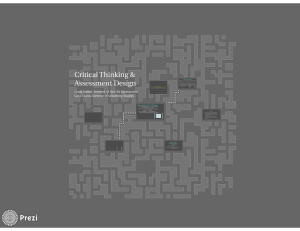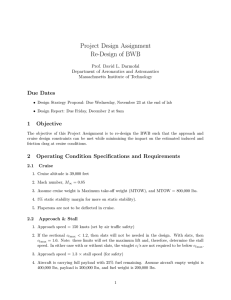AP Physics 1 and AP Physics 2
advertisement
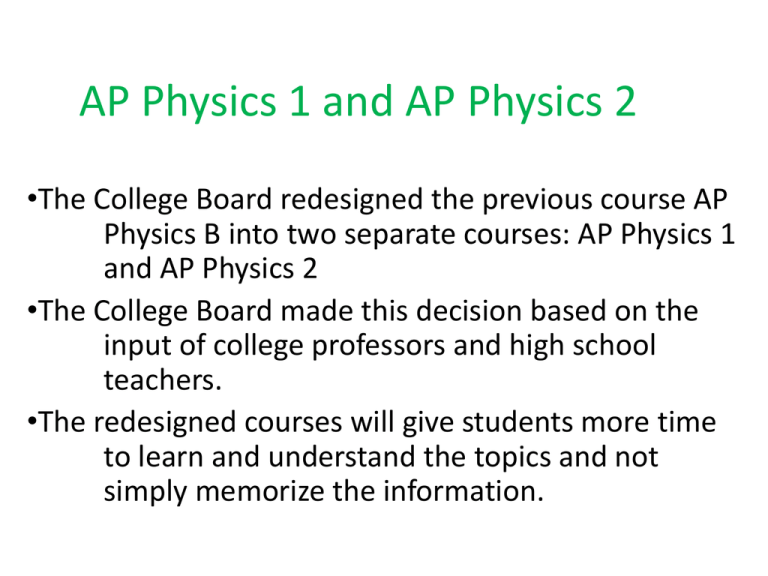
AP Physics 1 and AP Physics 2 •The College Board redesigned the previous course AP Physics B into two separate courses: AP Physics 1 and AP Physics 2 •The College Board made this decision based on the input of college professors and high school teachers. •The redesigned courses will give students more time to learn and understand the topics and not simply memorize the information. What are the Changes? • AP Physics B has been dropped as a course option. In its place are two separate classes: AP Physics 1 and AP Physics 2. • Students may take both of the new courses or just one. • Each course has a separate AP Exam, and each course counts as a separate weighted science credit for PWCS Schools. What makes the new course “new”? • The redesigned courses focus more on physics concepts and less on solving physics problems. • An in-depth study by the National Research Council (NRC) concluded that AP Physics B is a very broad course that “encourages cursory treatment of very important topics in physics” rather than cultivating a deeper understanding of key foundational principles. • The new courses emphasize the need for inquiry instruction and indepth exploration of topics. • The new curriculum is organized under seven “big ideas” that articulate the foundational principles of introductory physics. • Teachers and students will have more time to engage in hands-on explorations of physics and labs. • The ability to develop and use physics knowledge by applying it to the practice of scientific inquiry and reasoning is at the heart of the new physics courses and exams. • The exam will still include multiple choice and free response questions. The FRQ portion will require more writing and explanation of the physics principles at work. What are the Requirements? • The requirements have remained unchanged. • The math requirements for AP Physics 1 are the completion of Algebra 1 and geometry. Students must be enrolled in Algebra II/Trig. or higher. • The science requirements are completion of chemistry. What are the Science Options? • After students complete AP Physics 1, they are eligible to take AP Physics 2. • AP Physics 1 is a prerequisite for AP Physics 2 because many foundation ideas are established in the first course. The College Board does not recommend that students take the courses concurrently. • Students may take AP Physics C after taking AP Physics 1. • Students make take any other AP science course that fits their interests.
